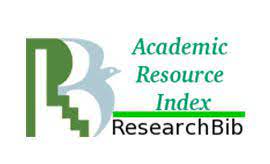DEVELOPMENT OF SOCIO-CULTURAL COMPETENCE OF STUDENTS STUDING ENGLISH LANGUAGE IN PROFESSIONAL PRE-HIGHER EDUCATIONAL INSTITUTIONS
DOI:
https://doi.org/10.51707/2618-0529-2020-17-01Keywords:
competence, socio-cultural competence, international-oriented personality, dialogue of cultures.Abstract
In the article essence of the concept “sociocultural competense”, certain theoretical principles of its forming and development are analysed and described; the developing system of sociocultural competense is studied; also the complex of tasks for students of pre-higher education is worked out. The linguistic, unlinguistic and country-specific components of sociocultural competence are characterized. It is proved that students should know about the geographical location and economic condition, historical development and features of cultural values of the country, the language they are studying in order to have a foreign socio-cultural competence. In our research we conclude that the structure of socio-cultural competence consists of communicative (balancing existing language forms, which are determined based on the linguistic competence of the communicant on the background of certain social functions), country-specific (set of knowledge about the country whose language is studied), linguistics (to carry out intercultural communication based on knowledge of lexical units with the national-cultural component of semantics and skills of their adequate application in situations of intercultural communication) and sociolinguistic competence (ability to use the rules of delicate speech in communication). Thus, students expand their outlook and work on adequate perception of cultural features of native speakers, their habits, traditions, norms of behavior, etiquette and the ability to understand and use them in intercultural communication. It is proved that for the formation of socio-cultural competence in English classes in pre-higher education institutions students must learn about the achievements of national culture in the development of universal culture and thus enter into a dialogue of cultures, teachers should use certain exercises to develop such skills.
References
Azimov, E. G., Shchukin, A. N. (2005). Dictionary of methodological terms (theory and practice of teaching languages). St. Petersburg : Zlatoust [in Russian].
Yaremenko, V. V., Slipushko, O. M. (2006). New explanatory dictionary of the Ukrainian language. (Vol. 1). Kyiv : AKONIT [in Ukrainian].
Competence. Retrieved from : https://uk.wikipedia.org/wiki/%D0%9A%D0%BE%D0%BC%D0%BF%D0 %B5%D1%82%D0%B5%D0%BD%D1%86%D1%96 %D1%8F [in Ukrainian].
Kolodko, T. M. (2014). Pedagogical conditions for the effective formation of socio-cultural competence of students in the process of learning a foreign language. Naukovi zapysky : zb. nauk. prats. Kyiv : NPU, 57, 54–63 [in Ukrainian].
Kalinin, V. O. (2013). The structure and content of the concept of “socio-cultural competence”. Neperervna profesiina osvita: Teoriia i praktyka. Kyiv. 65–72 [in Ukrainian].
Kolodko, T. M. (2004). To the problem of formation of foreign language socio-cultural competence of students. Pidhotovka vchytelia pochatkovykh klasiv v umovakh navoi paradyhmy osvity. Materialy mizhnarodnoho nauk.-prakt. konferentsii NPU imeni M. P. Drahomanova. Kyiv : NPU, 124–129 [in Ukrainian].
Nikitenko, Z. M., Osiyanova, O. M. (2016). To the problem of highlighting the cultural component in the content of teaching English language. Inostrannye yazyki v shkole, 3, 67–80 [in Russian].
Vereshchagin, E. M. (2015). The content and organization of extracurricular educational activities of students studing foreign languages in full-time schools. Extended abstract of candidate’s thesis. Moscow State Linguistic University. Moscow [in Russian].
Passov, E. I. (2017). The purpose of teaching a foreign language at the present stage of development of society. Inostrannye yazyki v shkole, 6, 176–218 [in Russian].
Kucheriava, O. A. (2008). Formation of socio-cultural competence of secondary school students. Extended abstract of candidate’s thesis. Pivdennoukrainsk. derzh. ped. un-t im. K. D. Ushynskoho. Odesa [in Ukrainian].
Polat, E. S. (2011). Method of projects in foreign language lessons. Inostrannyy yazyk v shkole, 2, 3–10 [in Russian].
Traditional British Meals. Retrieved from : https:// znanija.com/ task/25973915 [in English].
Downloads
Published
How to Cite
Issue
Section
License
Copyright (c) 2021 Scientific notes of Junior Academy of Sciences of Ukraine

This work is licensed under a Creative Commons Attribution 4.0 International License.













